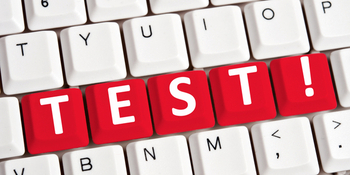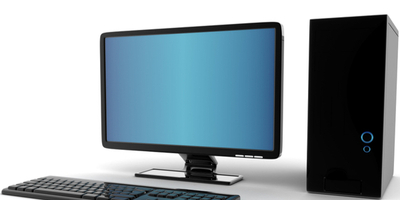
When purchasing a computer, first consider your budget and how much time you will dedicate towards its usage.
More...
It is essential to consider the type of computer you want when buying one, especially since many things go into purchasing a computer.
A computer is an investment, and it's important to know what you want before you spend your money.
Important to realize that there are considerations such as what specifications and features fit your needs from the processor and the hard drive to the proper display size.
Comparatively, others focus on the computer's lifespan in their purchase decision. At the same time, others focus on buying a used laptop or desktop because it is more affordable.
Below are some tips on what you should look for when purchasing a computer that might not be obvious at first glance.
Purchasing a Computer: Check the Seller’s Reputation
Check the seller's reputation by looking up reviews on websites like Amazon, eBay, Yelp, and Facebook to ensure they are legitimate sellers with good customer service, not fly-by-night operations that will disappear after you buy their product.
Reviews will give you insight into whether or not you're getting your money's worth and help prevent scams such as fake sellers who are trying to make an easy buck off unsuspecting buyers.
Also, reviews will give insight into any potential problems with your purchase that could affect functionality or performance later on down the road.
Research Your Options
Research the different types of computers available and their features, performance, etc.
You'll want to make sure you're getting the best value possible on your purchase by comparing new vs. used models before making a decision.
What Kind of Computer Do You Need?
Do you want something powerful enough to handle everything? Is speed important? What about storage space or RAM capacity? Are peripherals included in the sale price, such as a mouse or keyboard?
Does your laptop have software preinstalled or a step-by-step installation guide so that setup is taken care of for you without spending time or extra money later on?
If you will solely use the computer for work, it would make sense to purchase one with good performance and enough power to run your programs without any problems.
On the other hand, if you want something more portable or less expensive with lower specs, purchasing a computer from Craigslist or eBay is a good option.

Test Your Computer
Make sure that you have plenty of time to test out your potential purchase before committing to buying the device.
Ask about standard maintenance on the computer system. To explain, this means that it includes the latest security software to avoid any adverse effects and will also check for potential threats or problematic issues in the future.
Check the Battery Life
If you buy a laptop, make sure that it boots up and runs smoothly without any problems. It's essential to check that the battery still holds a charge.
Simply put, batteries have an average lifespan of three years and will eventually die on their own when they are not changed often enough.
Additionally, make sure that there is no sign of damage or cracks in any part of the casing to avoid potential problems down the road with pieces breaking off over time.
Examine the Internal Components
Make sure you know what type of processor is in your computer and that it's running at its full speed potential.
Check to ensure there are no cracks or other damage to the casing of your laptop, desktop, or tablet device, which could prevent proper cooling during use and cause overheating problems later on.
If you're not familiar with how computers work internally, ask questions about where things go inside. In addition, ask about RAM types, and find out if the device has an SSD drive.
Also, determine whether or not there is any software on the machine that will interfere with future use.
Check the Physical Appearance
Ascertain that it is in good condition and there aren't any missing parts. It should also have no scratches on the screen and other computer functionality components.
Inspect all cables, plugs, and USB ports to ensure they work correctly.
If possible, inspect all cables coming out from under the case; check them for fraying ends, loose connections, etc. Also, take note of any signs that indicate power surges have been occurring.
Examine any loose screws. Look at how many years have passed since its manufacture. By all means, test out different features before purchasing a computer from any seller.
Tips to Consider | |
|---|---|
1 | Know what you need the computer for |
2 | Make sure there are no viruses on your system |
3 | |
4 | Research different models and their specs |
5 | Research the computer's history and its previous owners |
6 | Test out peripherals like printers |
7 | Check that all necessary software has been installed, updated, or removed if not needed anymore |
8 | Decide on your budget |
9 | Decide how long you need your computer to last |
10 | Consider refurbished computers |
More Suggestions | |
|---|---|
11 | Inspect the power supply |
12 | Purchase from an authorized retailer |
13 | Does your purchase come with a pre-installed operating system and anti-virus software |
14 | Check out their inventory before making any purchases |
15 | Make sure all hardware is working correctly and there aren't signs of water damage anywhere on their computers |
16 | Find out how long they've been selling these machines |
17 | Look at the feedback left by previous buyers |
18 | Search forums where other users discuss purchasing these types of items |
Check the Serial Number
Search on Google "serial number" and see if there is an online database of serial numbers to help you find out what model it is, how old it might be, and its value.
Before purchasing a computer, ensure that you are not buying stolen property. To do this, look at the serial number on your computer and compare it with online databases of known stolen computers or devices.
If they match up, proceed with caution as there is likely something wrong with what you're about to buy!

In the Final Analysis
Compare prices in different stores before purchasing a computer.
Check the computer's condition before purchasing it by using your phone to take pictures of all sides, front and back.
Ensure that there are no scratches or dents on any part of the device. Determine what operating system is preinstalled.
Make sure any used PC has been wiped clean of all personal information. Moreover, this includes files like documents, music, movies/TV shows, etc., cookies the web browsing history.
Lastly, when you purchase a computer, you invest in your future. You can spend a little more and get the best of the best!
A computer allows for self-expression through art and music, and they keep up with the latest technology. Investing wisely and buying smart will pay off big time!